Archive
25 August 2020
TU Delft researchers separate microparticles on the basis of their shape
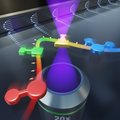
Scientists in Delft have developed a technique for selectively separating microparticles in a liquid on the basis of their shape. The technique calculates precisely the path that a specifically shaped microparticle will follow in a flow through a narrow tube. This makes it possible to set up a sorting channel, in which the differently shaped particles each find their own way. The new technique, which was published today in the journal PNAS, can be used in a range of sectors, for example in the manufacture of medicines or removing microplastics from water.
06 August 2020
Heike Vallery in various media
As healthcare becomes increasingly complex, Professor Heike Vallery strives for simpler and lighter systems for learning to walk again.
31 July 2020
TU Delft research partner in innovative wind farm Hollandse Kust Noord
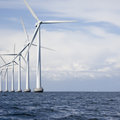
As the research partner in the so-called Hollandse Kust Noord (HKN) project, TU Delft is playing a significant role. Once the wind farm has been built, researchers, led by Professor Jan-Willem van Wingerden, will be able to test their findings regarding wind energy in practice, and the amount of energy generated by the wind farm will be maximised.
30 July 2020
Joris Dik in various media
A group of TU Delft bachelor students, led by professor Joris Dik, understood the secret of a special piece of wall, without affecting it. Their graduation thesis was published this week in the scientific journal Heritage Science.
29 July 2020
TU Delft students reveal hidden inscriptions from NSB leader
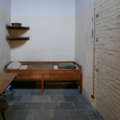
Led by Professor Joris Dik, a group of TU Delft bachelor's students was able to discover the secrets of this part of the wall without damaging it. The students’ graduation thesis was published this week in academic journal Heritage Science.
14 July 2020
Andrew Berry in various media
Researchers developed a backpack-like wearable robot to provide balance support during rehabilitation; the GyBAR.
14 July 2020
Daniel Lemus in various media
Researchers developed a backpack-like wearable robot to provide balance support during rehabilitation; the GyBAR.
14 July 2020
Saher Jabeen in various media
Researchers developed a backpack-like wearable robot to provide balance support during rehabilitation; the GyBAR.
14 July 2020
Recycling ammonia from animal manure is a good idea

Mahinder Ramdin has been granted 50,000 euros from NWO’s ‘Idea Generator’ programme for his out-of-the-box research idea ‘Recycling of ammonia from animal manure’.
13 July 2020
Never fall again thanks to backpack-like wearable robot
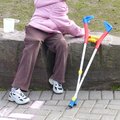
Balance aids currently used in daily life and rehabilitation clinics are helpful but far from perfect. Canes, walkers, crutches, and handrails modify posture and prevent the hands from being used during activities like opening doors, carrying shopping, or answering the telephone. Also more sophisticated tools like mobile bodyweight support systems or robotic gait trainers are bulky or can only be used in specific environments. Andrew Berry, Daniel Lemus and Saher Jabeen, researchers BioMechanical Engineering at TU Delft, led by Professor Heike Vallery, developed a backpack-like wearable robot to provide balance support during rehabilitation; the GyBAR. Fully contained within the backpack is a gyroscopic actuator – a spinning disc repositionable with electric motors – to provide hands-free balance support in multiple activities and environments. The results of the first experiments with human subjects and potential end-users have been published in Nature Scientific Reports.
13 July 2020
Jan-Henk Welink in Trouw
The global mountain of electronic waste is growing alarmingly fast.
13 July 2020
Open Science Awards for Joost de Winter and Pavlo Bazilinskyy
The Open Science Awards recognize researchers or research students who have used Open Science to make their research more accessible, transparent or reproducible.
08 July 2020
Year of the Lecturer 2020: A unique way of saying 'Thank you!'
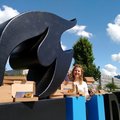
Changing 'the Lecturer of the Year elections' to 'The year of the Lecturer' and sending a nice thank you gift. What could it be?
06 July 2020
Arend Schwab in BNR
02 July 2020
Mechanical engineering students design inventive pack dog
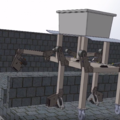
Parcel deliverers are faced with a challenge - partly due to the corona crisis - to deliver more and heavier parcels to people's homes. Our first-year students have a solution for this.
01 July 2020
Delft Technology Fellowship for Eline van der Kruk and Sabina Caneva

More outstanding female academics with a tenure track position – that is one of TU Delft’s most important pillars. The Delft Technology Fellowship (DTF) was introduced to help achieve this aim. Eline van der Kruk and Sabina Caneva are two top-level scientists who have been given positions at the 3mE faculty. This year, eleven fellowships were granted.
01 July 2020
Gerwin Smit in various media
A team of researchers and students is launching a new type of ventilator that is purely mechanical and that you could easily build and repair yourself.
29 June 2020
Gerjo van Osch in various media
28 June 2020
Jaap Harlaar in various media
TU Delft Master's students of Technical Medicine, under the supervision of Prof. Jaap Harlaar, want to develop a simple and relatively inexpensive ventilator as soon as possible.
25 June 2020
Clinical technologists officially registered healthcare professionals
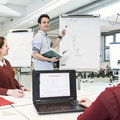
Good news for the technical physicians who will be first to graduate from the joint programme at TU Delft, Erasmus MC and LUMC. They can use the legally protected title of clinical technologist and register in the BIG register. This makes them officially registered healthcare professionals allowed to carry out reserved procedures independently. Clinical technologists will be given first-line status and therefore have the authorisation to register and declare healthcare activities. This is a milestone in the positioning of this still recent professional field, according to programme directors Jaap Harlaar and Pleun Hermsen.
18 June 2020
e-Refinery in Delftse Post
Plants and trees are formed from CO2, sunlight and water. They created petroleum in the sea millions of years ago. When the products that we make from petroleum are burned, the CO2 in the air that took millions of years to form petroleum is released in a very short time. This CO2 contributes to the greenhouse effect and thus to global warming.
18 June 2020
Tamás Keviczky in various media
18 June 2020
Jaap Harlaar and Gerjo van Osch appointed Medical Delta professors
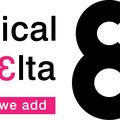
Today, Medical Delta, the interdisciplinary consortium for technological solutions in healthcare, is announcing nine new Medical Delta professors. Two members of the 3mE faculty have been appointed, namely Jaap Harlaar, professor of biomechatronics & Human Machine Control, and Professor Gerjo van Osch, parttime professor Integrative Cartilage Regeneration at the department of BioMechanical Engineering and Principal Investigator Orthopaedics & Otorhinolaryngology at Erasmus MC.
18 June 2020
Impulse health & technology research with nine new Medical Delta professors
Nine professors are now allowed to call themselves ‘Medical Delta professors’. They received a dual appointment at two or more academic institutions (LUMC, Leiden University, TU Delft, Erasmus MC, Erasmus University) that are affiliated with Medical Delta. This will boost health & technology research once again.
18 June 2020
Klaas Visser in De Ingenieur
More and more ships are being built with electric motors on board. "Society is increasingly demanding emissions-free sailing. As a result, more and more shipbuilders are starting to focus on emission-free propulsion of ships, "says Klaas Visser.
17 June 2020
Tamas Keviczky and team win the International Autonomous Greenhouse Challenge
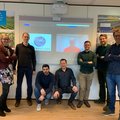
Tamas Keviczky, hoogleraar Networked Cyber-Physical Systems and a team of researchers and students from TU Delft in cooperation with the companies Van der Hoeven Horticultural Projects, Keygene and Hoogendoorn Growth Management has won the 2nd International Autonomous Greenhouse Challenge. Five teams participated, the Automatoes team, with the help of advanced data-driven control algorithms and artificial intelligence (AI), not only achieved the best tomato harvest after six months, but also scored best on sustainability in a fully automated greenhouse.
16 June 2020
Researchers create a new class of rate-sensitive mechanical metamaterials
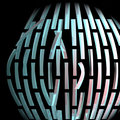
Researchers at the Department of Biomechanical Engineering of Delft University of Technology have created a new class of metamaterials that can dynamically switch their mechanical behaviour. It may form the basis for practical applications such as fall-protective clothing for the elderly. The results are to appear in the journal Science Advances on 17 June.
04 June 2020
Micro-pipette probe for tuning the volume and particle concentration of liquids

At the PME department, a micro-sized pipette probe has been developed for handling multiple liquids. It is the first time that such a small probe can dose fluid volume, and simultaneously control the concentration of particles inside the fluid.
02 June 2020
Mexico receives prototype of mechanical ventilator developed by TU Delft
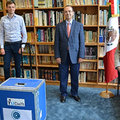
The Embassy of Mexico in the Netherlands received the prototype of a mechanical ventilator developed by Delft University of Technology (TU Delft) within the framework of its Project Inspiration. The prototype will be lent to the government of Mexico to support its efforts in the fight against the COVID-19 pandemic.
02 June 2020
3mE well represented in TU Delft AI labs

Today TU Delft launched eight new 'TU Delft AI Labs'. The goal is to use artificial intelligence (AI) to accelerate scientific progress. The labs bring together scientists doing research in AI and with AI.
02 June 2020
Tamás Keviczky appointed full professor Networked Cyber-Physical Systems

Tamás Keviczky appointed full professor Networked Cyber-Physical Systems. Tamás Keviczky joined the Delft Center for Systems and Control in 2007 and has worked there as an associate professor since 2015.
01 June 2020
Amir Zadpoor in various media
A project team of scientists active in the Medical Delta region is testing the first prototypes of a ventilator consisting entirely of standard parts. These parts are locally stocked almost everywhere in the world and can be made by hundreds of manufacturers. As a result, the ventilator can in many cases be assembled locally. The design hopes to respond to the demand for respiratory equipment and the logistical problems that exist due to a shortage of specific parts.
28 May 2020
Jan Klein in various media
According to professor Jan Klein, authority in the field of patient safety, the number of calamities hardly decreases.
25 May 2020
Jinne Geelen in various media
For people who are paralyzed and unable to move, communication is difficult. Or can you also control a computer with your thoughts?
19 May 2020
How to convert the mechanical engineering competition into an online event
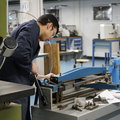
Due to the restrictive corona measures, the design project of the first-year Mechanical Engineering looks very different this year. What if you are no longer allowed to get together and work, and if you can’t build and test a design in the workshop?
15 May 2020
Bart van Trigt in various media
Bart van Trigt is researching how to reduce injuries among athletes, especially baseball and tennis players.
13 May 2020
Two mechanical engineering students victim of Scheveningen surfing accident
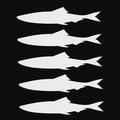
We deeply regret to inform you that two students from our faculty were involved in the tragic surfing accident on Monday 11 May in Scheveningen.
07 May 2020
Frans van der Helm in Algemeen Dagblad
07 May 2020
Smart optics against smart parasites
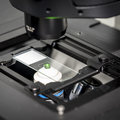
This Wednesday May 6th, Tepitome ‘Tope’ Agbana successfully defended his PhD on ‘Smart Optics Against Smart Parasites’, at Delft University of Technology (3ME faculty). The defence took place at the Senate room of the Aula while four other committee members joined via Skype . Agbana’s research concerns the early detection of malaria, which is the leading cause of death among pregnant women and young children: 11% of maternal and 20% of under–five deaths are attributed to malaria every year.
06 May 2020
TU Delft students share ventilator design for international use
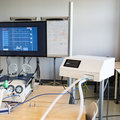
In a very short period of time, students involved in OperationAIR have successfully developed an emergency ventilator for coronavirus patients. Following the necessary test procedures, the design of the AIRone – including all related documentation – has now been released online so that other countries and initiatives can also benefit from it.